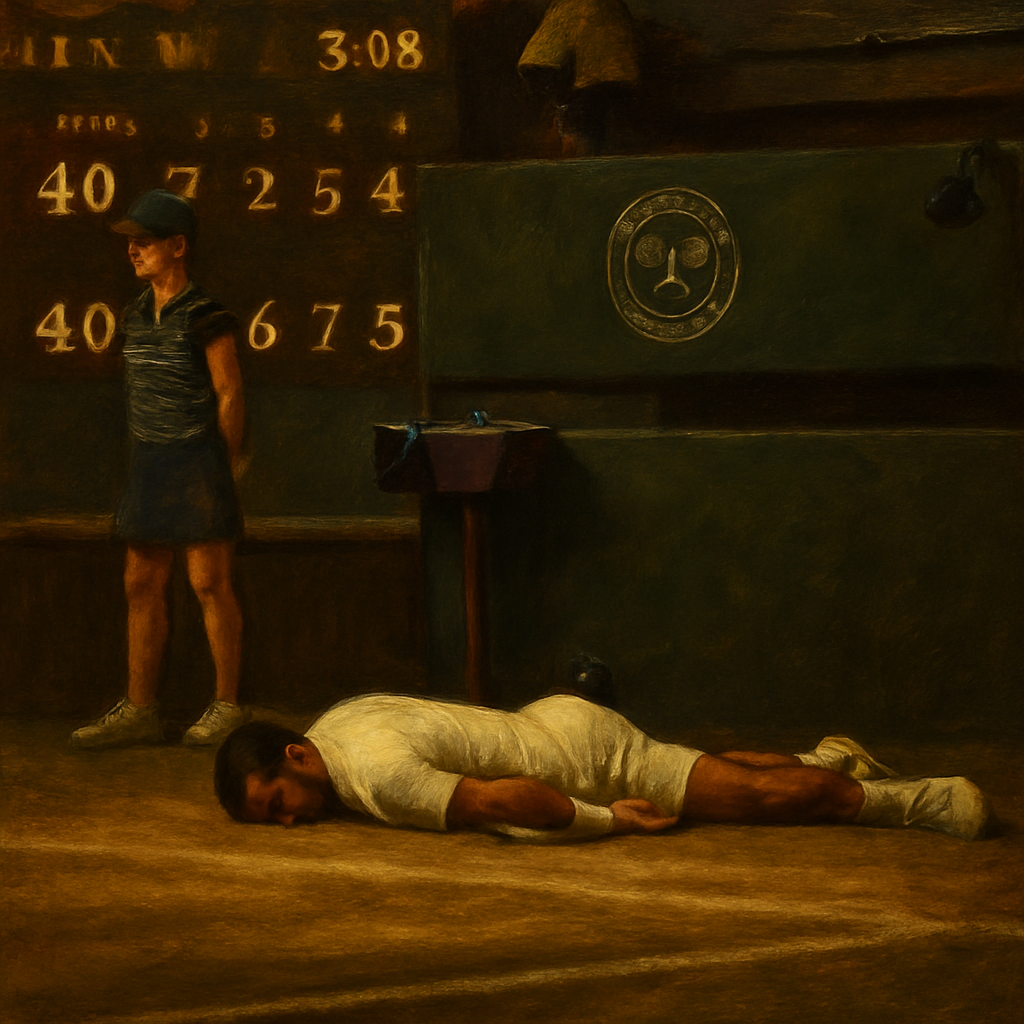LONDON — Novak Djokovic, the seven-time Wimbledon champion, suffered a dramatic fall during his second-round match against Australia’s Alexei Popyrin on Wednesday, leaving the Serbian star writhing in pain on Centre Court. The incident occurred late in the third set, with Djokovic clutching his left knee after slipping near the baseline. Popyrin immediately rushed to his opponent’s aid, showcasing a moment of sportsmanship that drew applause from the crowd.
Djokovic, who is competing less than a month after undergoing surgery for a torn meniscus sustained at the French Open, appeared visibly shaken by the fall. The 37-year-old grimaced as he rolled onto his back, prompting medical staff to rush onto the court. "I felt a sharp pain, and for a moment, I feared the worst," Djokovic later admitted in his post-match press conference.
A Tense Moment on Centre Court
The match, already intense due to Popyrin’s aggressive play, took a concerning turn when Djokovic lost his footing while attempting a sliding backhand. The slip sent him crashing to the grass, where he remained for nearly a minute before gingerly rising to his feet. Popyrin, displaying remarkable empathy, crossed the net to check on his rival. "I just wanted to make sure he was okay. It’s never nice to see someone in pain, especially a legend like Novak," Popyrin said afterward.
Despite the scare, Djokovic managed to continue after a brief medical timeout. He received strapping on his knee and fought through discomfort to secure a 4-6, 6-3, 6-4, 7-6(3) victory. However, the incident raised questions about his physical readiness for the tournament. Djokovic, who has been vocal about his determination to win an eighth Wimbledon title, downplayed concerns: "I’ve played through worse. The knee held up, and that’s what matters."
Djokovic’s Road to Recovery
The fall reignited discussions about Djokovic’s recent injury struggles. His withdrawal from the French Open—where he was the defending champion—marked the first time he had retired mid-tournament in a Grand Slam. His swift return to competition at Wimbledon surprised many, including his team. "We knew the risks, but Novak was adamant about playing," revealed his coach, Goran Ivanišević.
Key factors in Djokovic’s decision to compete at Wimbledon:
- Minimally invasive surgery: His procedure in Paris was described as "minor," with a quicker recovery timeline.
- Grass-court advantage: The softer surface is considered gentler on joints compared to hard courts.
- Olympic motivation: Wimbledon serves as a crucial warm-up for the Paris Olympics, where Djokovic aims to finally secure a gold medal.
Fan and Peer Reactions
The tennis world reacted swiftly to the incident. Andy Murray, a longtime rival and friend, tweeted: "Hope @DjokerNole is alright. Scary moment. Shows his toughness to keep playing." Meanwhile, fans expressed mixed emotions—relief that Djokovic continued but concern over his long-term fitness. Social media buzzed with debates over whether he should have taken more time to recover.
Popyrin, despite the loss, earned widespread praise for his sportsmanship. The 24-year-old, ranked 47th in the world, later joked: "Maybe I should’ve left him there—could’ve been my only chance to beat him!" But he turned serious when reflecting on Djokovic’s resilience: "That’s why he’s one of the GOATs. Most players would’ve quit, but he just finds a way."
What’s Next for Djokovic?
Djokovic faces a tough third-round clash against either #30 seed Tomas Martin Etcheverry or Alex Bolt. Medical staff confirmed no structural damage to his knee, but he will undergo further evaluation. When asked about his prospects, Djokovic remained defiant: "I didn’t come here to withdraw. I came here to win. If I step on the court, I believe I can."
The incident underscores the physical toll of Djokovic’s late-career ambitions. With 24 Grand Slam titles already, he continues to push his body to historic limits. As tennis analyst Craig O’Shannessy noted: "Every match is a calculated risk now. But if anyone can defy age and injury, it’s Novak."
Conclusion
Djokovic’s fall at Wimbledon served as a stark reminder of the fragility of even the greatest athletes. Yet, his ability to persevere—bolstered by moments of camaraderie like Popyrin’s gesture—cements his legacy as a competitor who thrives under adversity. As the tournament progresses, all eyes will remain on his knee—and his unyielding quest for another title. "Pain is temporary," Djokovic said with a smile. "Trophies are forever."

